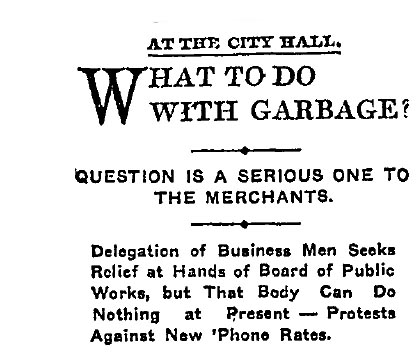
March 9, 1907
Los Angeles
The Insanity Begins
Led by I. Newerf and J.B. Dudley, the automobile owners of Los Angeles are fighting a new city ordinance that bans parking within 40 feet of downtown intersections. Newerf, the West Coast representative of Goodyear Tire Co., and Dudley, a car salesman, received citations for violating the law and have pleaded not guilty.
In April 1909, Dudley pleaded not guilty to involuntary manslaughter after hitting street inspector Woodman J. Thomas on Broadway near 5th Street. He was sentenced to five years’ probation in March 1910.
Disgraced Woman
Hazel La Doux, a.k.a. Hazel Rogers, hid her face with a veil as she was tried on charges of forgery.
“Her downfall is said to be due to a man named William Rogers, an alleged Ascot tout who deserted her,†The Times says. “It is charged that Miss La Doux forged the name of Mrs. John Brink on a check for $120 and cashed it.â€
La Doux told police that she and Rogers used a scheme in which she took a job with a reputable employer and passed clients’ information to her lover. La Doux said she worked at a department store in Oakland and a dentist’s office in Los Angeles, turning over names to Rogers, who forged the checks.
“She had been an honest woman, she said, until Rogers’ oily tongue and smooth ways captivated her and she became his mistress and then a thief,†The Times says.
He Paid $40
Restaurant owner Frank Flood stood over his wife, Annie, as she lay on the floor of their quarters at a Spring Street rooming house and said it would be worth the $25 fine just so he could beat her up.
In testifying against him, “She recited a story of shocking cruelty, saying that she had been mistreated, scorned and finally beaten by the man who promised to love, cherish and protect her,†The Times says.
Flood did not dispute any of the charges, refused to cross-examine her (a husband’s right in those days) and pleaded guilty to battery. “He admitted that he struck her and confessed to having assaulted her with his fist as she lay on the floor,†The Times says.
He paid $40 ($837.08 USD 2005).
Flood skipped town in September 1907. “He made the acquaintance of a fast sot and spent plenty of money, too much, in fact, for a man of his means. Late suppers at swell cafes cost Flood much cash. Then he became possessed of a desire to take long journeys in touring cars. He paid his bills with other people’s money, the new restaurant manager says, by levying on the cash drawer of the restaurant, which is owned by a company,†The Times says.
Lmharnisch.com
Lmharnisch.blogspot.com
E-mail: lmharnisch (AT) gmail.com







